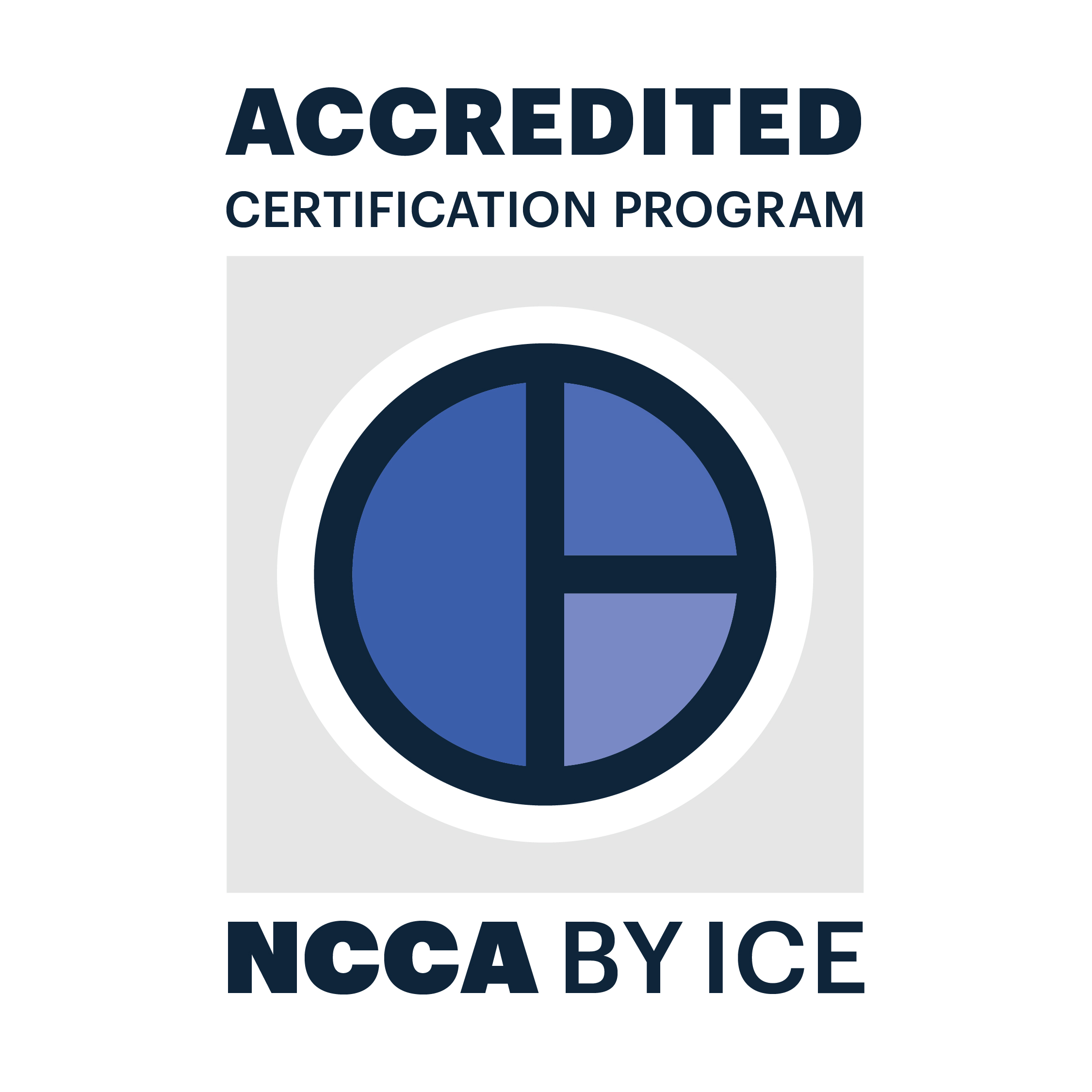NBCRNA Accreditation
The credentialing programs of the NBCRNA are accredited by the National Commission for Certifying Agencies (NCCA) and the Accreditation Board for Specialty Nursing Certification, Inc. (ABSNC). Currently, there are more than 61,000 nurse anesthetists certified to use the CRNA designation.
The NCCA is the private not-for-profit accrediting branch of the Institute for Credentialing Excellence (ICE), which is the national standard-setting organization for credentialing groups including certification boards, licensing boards, and associations. The NBCRNA received its initial accreditation by the NCCA in June 1984 and our programs have been continuously accredited since 1980.
The Accreditation Board for Specialty Nursing Certification (ABSNC) of the American Board of Nursing Specialties (ABNS), established in 1991, is a national peer review program for specialty nursing certification bodies. It promotes the highest quality of specialty nursing practice through the establishment of standards of professional specialty nursing certification. When the NBCRNA received its initial accreditation from the ABSNC in August 1992, it was one of the first national certification bodies to be recognized and approved by the ABSNC.
In June 2022, the NCCA and ABSNC re-accredited the NBCRNA's Continued Professional Certification and Nonsurgical Pain Management programs. Each program is re-accredited for the maximum five-year period.
For more information about NCCA and ABSNC accreditation, visit their websites.
NCSBN's Nursys Database Welcomes Data from NBCRNA
NCSBN announces that the National Board of Certification and Recertification for Nurse Anesthetists is now uploading their certification information into the NCSBN Nursys database. This new service is valuable to BONs as they now have real-time access to current certification credentials as part of the licensure process for certified registered nurse anesthetists (CRNAs). This is also of great benefit to CRNAs for whom continual certification is a requirement of licensure/state recognition.


.png?sfvrsn=9674d458_2&MaxWidth=400&MaxHeight=400&ScaleUp=false&Quality=High&Method=ResizeFitToAreaArguments&Signature=1A018308D1E0D4870E9952000CA592D397ED6FD0)
